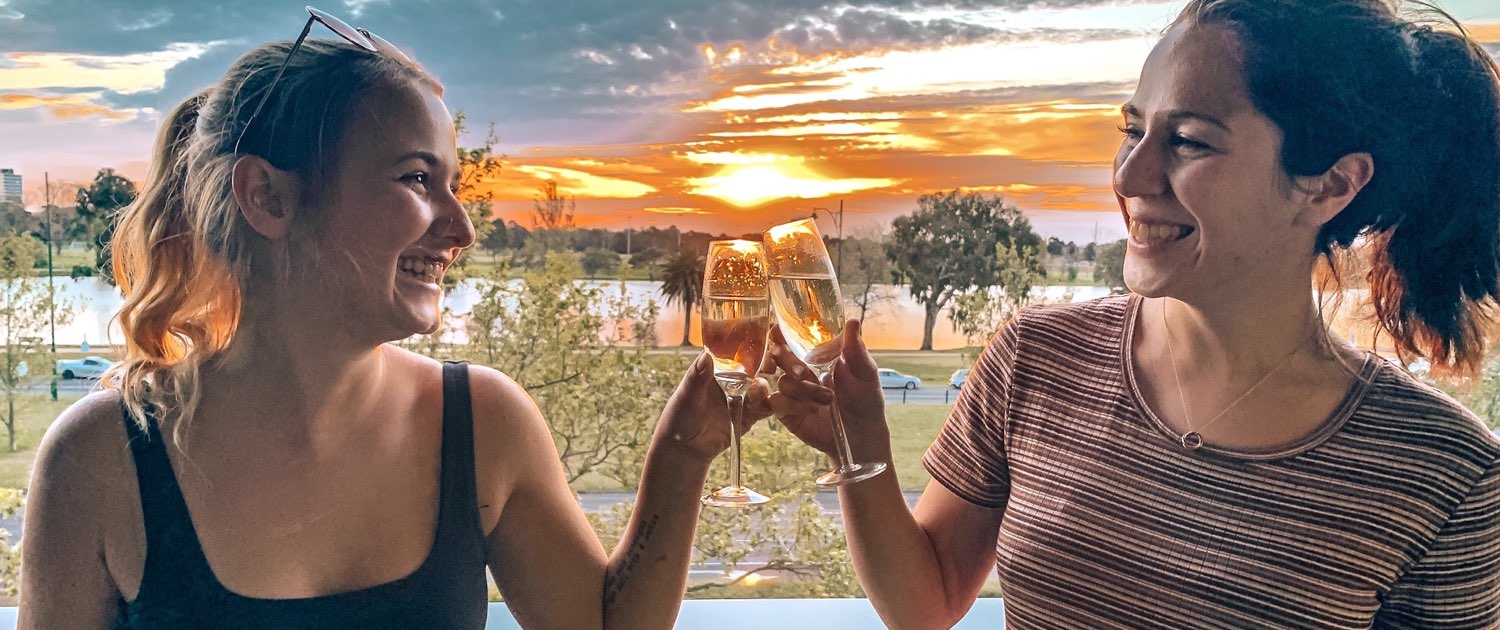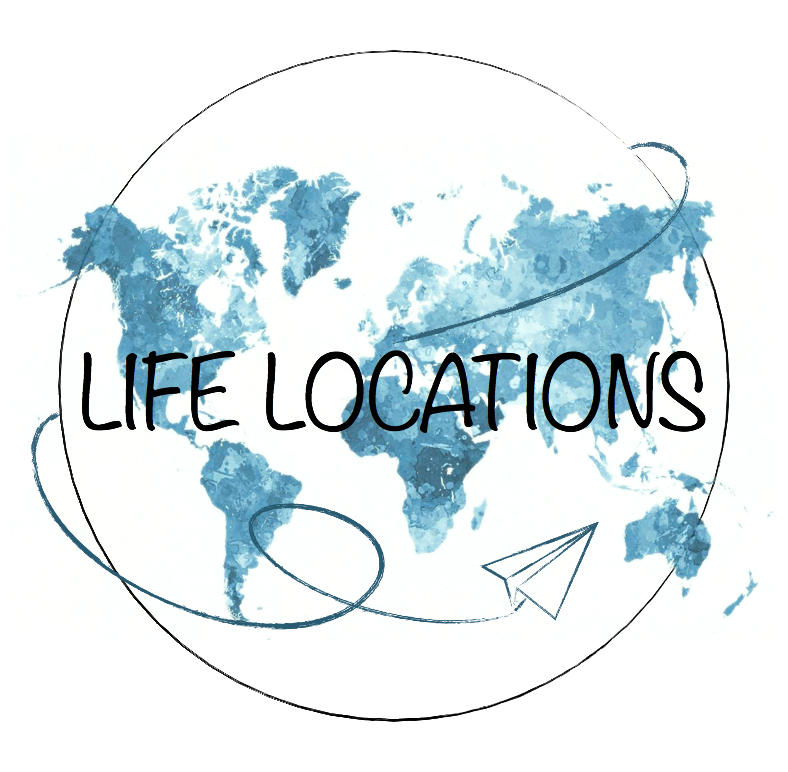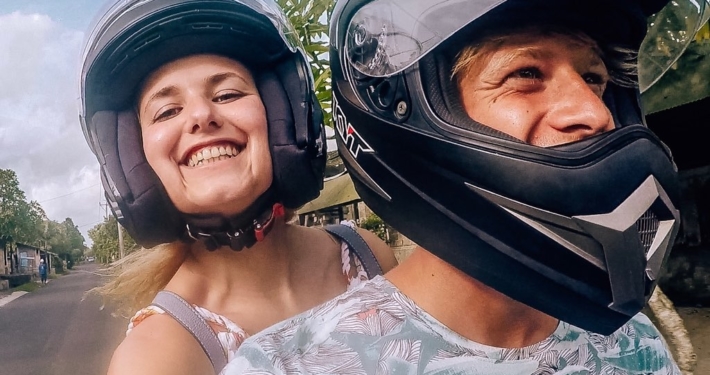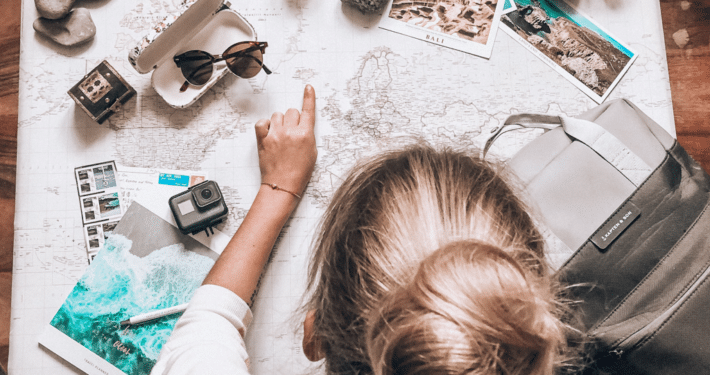Tips | Finding a job in Australia
You got your Working Holiday Visa and now you are ready to find a job in Australia! So that everything works perfectly when you are looking for a job and not give up after a few days, there are important tips in this article that will make your job search in Australia easier.
My own start into the working life in Australia was a bit bumpy at first and I would have really liked to do some things differently. But hey #lessonslearned and now you also have advantages from this.
// Sort your thoughts
// Customize your CV/resume
// Preparing as an employee
// Necessary certificates
// Working hostel & vitamin B
// Application online or in person?
// Private job agencies
// My own experience

b
Sort your thoughts
First of all, you should first know in which branch of industry you want to work in Australia. The job opportunities are of course really various in each region at different seasons. In any case, keep in mind: You can usually only work for a maximum of 6 months for the same employer in most jobs. This is why it’s more difficult for backpackers to get a job in some areas, because the employer has to familiarize you with the job and estimates whether the effort for a short job is worth it. But don’t worry: there are definitely enough ways to make money. With a little luck, maybe even in your subject that you have already studied. In any case, be open to new tasks. The sectors that often offer job opportunities for backpackers:
- Gastronomy (waiters, bartenders, barista, kitchen help)
- Hostel / Hotel (reception, housekeeping)
- Cleaning companies
- Farm jobs (harvest helpers for fruits and vegetables, ranch work, horse work, solar farm)
- Tour organizer (administrative work, tour support / management, marketing)
- Promotion / charity organizations
- Supermarket (cashier, store shelves)
- Construction work (various activities in the construction industry)
- Office (often experience and very good knowledge of English necessary)
Have you already gained experience in one of the branches before? Perfect! Then your job opportunities are even better.
Be sure to find out in advance which job area is suitable for which location in Australia. If you want to work in the restaurant business like me, you probably have to say goodbye to the outback first.
I chose Melbourne: There is an incredibly large coffee and dining culture and therefore cafés and restaurants on every corner. An easy decision.
b
Customize your curriculum vitae
Say goodbye to the classic application that you were taught during your school or university days. In Australia, nobody is interested in your high school diploma or that you have been involved in chess working group for many years. Your professional experience counts! Did you help out in your parents’ village café for several years? Sounds rather unspectacular to you as a marketing student but very appealing for a job in the gastronomy in Australia. Highlight the experience you have gained in the industry. If you have no experience, try to highlight connections: You have worked in the care sector, for example, and can therefore deal with strangers in a particularly charming way — which could also be positive for your work in the gastronomic industry.
Note: A simple, formally correct application is sufficient! Limit yourself to an expressive, one-page resume, in which you emphasize the relevant professional experience and not a long cv with 20 attachments.
b
Preparing as an employee
In order for you to officially accept a job in Australia and, above all, that you get your earned money, you need an Australian tax file number (TFN) and an Australian bank account. Take care of it at the latest during your job search. Even better: once you’ve arrived in Australia. You can do this personally at the responsible Taxation Office.
Since I didn’t feel like going to the authorities and wanted to have the application settled before my arrival, I applied for the tax number a few days beforehand via taxback.com. Your completed application will be saved there, submitted to the Taxation Officer immediately after your arrival and after a few days you will receive your TFN by email.
You can also get the Australian bank account before you arrive for example at Westpac Bank. An account is free of charge for the first 12 months and then costs you 5 AUD each month thereafter. However, you have to make a deposit after the first 6 months. As soon as you have arrived in Australia, you can go to your chosen bank branch with your passport and collect your checking account card there.
Now you are theoretically ready to start making money.
Tip: Get an Australian phone number right on your first day. You should also write this number accordingly in your contact information on your resume. Many employers prefer to talk about a trial work by phone rather than email. And in general I’m a fan of organizing a local SIM card in every country, mobile internet is super helpful in many situations and who knows whether you might have to make an important call.
b
Necessary certificates
In some jobs, you are legally obliged to provide various certificates that you must show before starting your work. In the hospitality industry, for example, you often have to show an RSA certificate (Responsible Service of Alcohol). This is a training course in which you learn how to serve alcohol responsibly and how to deal properly with alcoholized people.
Before you start working in construction work, you need the so-called white card. The training is primarily about avoiding hazards in a wide variety of construction activities.
Find out in advance whether you need a necessary certificate for your job. It definitely makes a good impression if you can already show the certificates.
For example, I did a barista course for my job in the cafe. Of course, that’s not enough to work as a professional barista. But even if you work as a waitress in a cafe, it could be helpful if you have the know-how of coffee art in Melbourne and can also jump in at the coffee machine.

b
Working hostel &. vitamin B
Many working hostels in Australia help you directly to find a job, mostly in farm work or fruit picking. You have to live in the hostel for this, of course, but there are often transport options to the work place — very advantageous, because many farm jobs take place far away.
Before you arrive, find out which jobs are available when you arrive. If it is not a harvest season, the possibilities are less.
If you decide to go for another industry or you just want to try it on your own, I still recommend you to stay in a hostel for the first few days/weeks. First, it is often the cheapest option, but above all, you get to know other backpackers! Vitamin B is super important in Australia. Perhaps the restaurant where your room mate is working is also looking for a barista?
In addition, you can work in your hostel in the housekeeping area for 2-3 hours at the beginning — so you can finance your stay in the hostel and at the same time you are able to look for a job in your free time.
b
Application online or in person?
Apply everywhere! Almost every hostel has boards with job advertisements. Go to the nearest kiosk and get a local newspaper. You will usually find some advertisements there in the Saturday edition.
A very popular variant of the job search takes place online, of course. There are many different job platforms that advertise new jobs every day. One of the most popular platforms is Gumtree. Backpackers will find there suitable tenders for every industry and everything else that can be useful for a work on travel, such as camper vans, accommodation or travel partners.
If you want to take a look around the gastronomic industry I can recommend Joralocal and Coffeejobs.
Don’t be discouraged if you may not get a job interview or trial work straight away. It took me almost three weeks to get my first real job.
TIP: In Australia, it is beneficial in most areas if you go personally to the job offers, introduce yourself briefly and leave your resume there. In this way, the employers immediately get a first impression of you or, if necessary, invite you directly to trial work.
b
Private job agencies
If you want to secure yourself with external support while looking for a job, you can introduce yourself to a private job agency in Australia. There you can fill out an application with your professional experience immediately after your introduction and the agency will check whether you are suitable for its customers.
Find out in advance that you are applying to a free agency to avoid unnecessary expenses for yourself.
Most agencies specialize in a particular industry. You can find the information and contact details in every backpacker hostel, in backpacker magazines or on the internet.
Now you should be well prepared for your work and travel in Down Under and definitely be successful with your job search. 🙂

b
My own experience
I didn’t go with job agencies and sent around 80 applications online in the first two weeks. Five answers came back. Two of which are trial works. And in the end just one job confirmation. It was super frustrating. But I thought to myself all the time: If an 18-year-old Lisa can do this after high school, then you are able to do it, too.
Sometimes you just have to be patient and have some luck. I randomly walk past a German Hofbräuhaus in Chinatown and handed my resume almost hopelessly to the host. The next day, after a short conversation with one of the managers, I was allowed to do trial work in the evening and worked the week after.
Note: Don’t be discouraged, even if you get some job cancellations at first. After all, there are many backpackers who are all looking for a job. Go personally to the potential employers and show your skills confidently during a trial work.
Lots of Love ♥

DID YOU LIKE THIS POST?
SPREAD SOME LOVE






Leave a Reply
Want to join the discussion?Feel free to contribute!